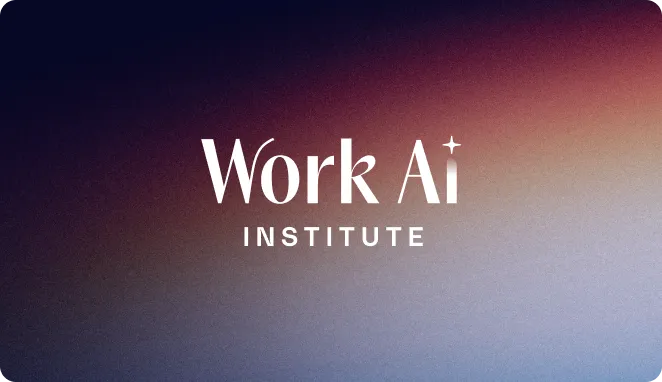- AI can enhance coding efficiency, such as through tools like GitHub Copilot, which can help developers code faster and improve code quality by giving them more time to think deeply
- The larger opportunity for improving developer productivity lies in automating non-coding tasks, which occupy around 75% of a developer's day. Tools like Glean can significantly reduce time spent on researching solutions, documenting, and collaborating with teammates
- Combining generative AI tools with Glean's productivity solutions can provide developers with up to 2.5 additional hours of productive coding time each day, effectively doubling their output
Recently, a customer came to me with an ambitious goal: doubling the productivity of their software development team using AI.
They were planning for growth but constrained by budget. Hiring more engineers wasn’t an option, and burning out their current team wasn’t either. Retaining top talent and keeping them happy was a top priority.
And this customer is not alone. According to the Cortex 2024 State of Developer Productivity survey, 90% of respondents say improving productivity is a top initiative in 2025.
Together we wondered: can AI realistically double developer output?
To answer that, we need to start by understanding what software engineering teams do all day.
Most of a developer’s day isn’t spent coding
Although coding is a hugely important part of the job, it’s not how most software engineers spend their time. According to a recent developer survey by the GitHub team, most software developers spend more than 75% of their time on non-coding tasks. Forrester Research’s 2024 Developer Survey found that “the remaining time is spent doing designs, writing tests, fixing bugs, and meeting with stakeholders… it’s easy to see that developers are doing a lot more than just writing code.”
“Developers often write code only around 2 hours a day, and are bogged down with mundane tasks across the software development lifecycle. What’s more, developers spend more time deciphering rather than shipping when they can’t pinpoint and solve the issues, bugs, or vulnerabilities…”
Thomas Dohmke
CEO, GitHub
So while improving code efficiency is important, it only addresses a small part of the overall productivity picture.

Making coding more efficient: Generative AI solutions
The most obvious way that AI, particularly generative AI, can improve coding efficiency is to help developers code faster. Tools like GitHub Copilot and Augment are designed specifically to help developers accelerate coding tasks by up to 55%, while also improving developer satisfaction.
Here at Glean we’ve embraced the use of code generation tools to help our developers be more efficient. But, we’ve found that not every second saved translates directly into new code. Instead, they often lead to better code — more thoughtful, well-structured, and innovative solutions — because engineers have more time to think deeply. This contradicts the common belief that teams that use code generation develop lower quality products. In reality, when used effectively, AI gives developers more space to focus on writing better code, not just more of it.
The missing piece: Context
One of the biggest blockers to coding efficiently isn’t the act of writing code. It’s the lack of context.
Developers don’t just need documentation on their codebase or style guide — they need instant access to dependencies, API documentation, and expert knowledge without breaking their flow. Glean in GitHub, brings the full depth of enterprise knowledge into the coding platform, making it accessible right where code is created. The experience of Glean, embedded in GitHub, lets developers ask questions and get answers in natural language directly where they work.
Still, even if you dramatically improve the efficiency of the 25% of time developers spend coding, you’re only impacting a small fraction of their day. Even if we generously estimate that code generation tools improve coding efficiency by 50%, they only address the ~2 hours of actual coding time most developers have each day. If a team writes 100 units of code in those two hours, AI might increase that to 150 units of code. An improvement to be sure, but not a doubling.

Beyond the IDE: Glean solves the 75% problem
The bigger opportunity for improving developer productivity isn’t in writing code — it’s in everything that surrounds it. Researching solutions, writing and reviewing documentation, responding to bugs, answering questions, and collaborating with teammates can take up as much as 75% of a developer’s day. These tasks are essential, but they often pull engineers out of flow and away from the work they enjoy most.
In fact, a Stack Overflow study found that:
- 53% report time wasted waiting for answers that are important to their work
- 50% report that information siloes negatively impact their work
- 30% report being negatively affected 10 or more times a week (around twice a day)
When developers are stuck waiting, they’re not just losing time, they’re losing momentum.

With Glean in GitHub, developers can resolve blockers in seconds — whether they’re looking for a specific code dependency, referencing an old Jira ticket, or double-checking API behavior. Instead of switching tabs or tracking down teammates, they can surface the right answer instantly through a simple natural language query.
Beyond just surfacing information, Glean also helps automate time-consuming tasks. Engineers can autogenerate pull request descriptions, find relevant code snippets in seconds, create Jira tickets automatically, and send Slack messages to teammates — all without leaving their coding environment.
These efficiencies add up. Most teams see at least a 25% reduction in time spent on non-coding tasks, with some even reporting efficiency gains of up to 47%. That translates to around 1.5 hours per day that developers can reclaim for deeper problem-solving, innovation, and writing better code.

Glean and Code Gen: 2.5 extra hours every day
When you combine the:
- ~1 hour saved by code generation tools, and
- ~1.5 hours of reclaimed time from using Glean
…you end up with the equivalent of 2.5 additional hours of productive coding time. That’s more than double the original 2-hour baseline.
Of course, productivity gains vary. But in aggregate, AI tools like Glean and GitHub Copilot together make the case clear:
Doubling developer productivity is possible.

It’s not just about output, it’s about outcomes
Productivity gains are often difficult to measure and they can vary by person, team, or task. What matters most is how that reclaimed time is used. When used intentionally, even small efficiency improvements can help engineering teams achieve bigger goals:
- Write higher-quality code. Instead of just generating more lines of code, teams with improved productivity can write better code, test it more fully, and repair any issues faster.
- Grow developer skills. Reclaimed time can be used for training and growth of engineering staff, providing both higher employee satisfaction and the compounding benefits of having staff that can create better, more innovative products, faster.
- Create more innovative products. With fewer repetitive tasks, engineers have more bandwidth to research customer needs, prototype new ideas, and improve algorithms. Time to think often leads to better solutions.
- Build happier teams. When developers have the space to focus on impactful work, they feel more fulfilled. That leads to stronger collaboration, higher retention, and better results across the board.
The real value of productivity isn’t just about doing more — it’s about creating space for better work, stronger teams, and more impactful outcomes.
Rethinking developer productivity
If your plan to boost developer output starts and ends with code generation, you're leaving most of the opportunity on the table. The real gains come from removing friction across the entire development workflow: finding the right documentation, surfacing context, reducing rework, and minimizing time spent waiting for answers.
When AI supports both code and context, working alongside developers in their flow, you don’t just accelerate output. You empower teams to write better software, focus on higher-leverage work, and build products they’re proud of.
The path to 2x productivity isn’t writing faster — it’s unblocking the rest of the developer experience.
Want to see it in action? Watch our webinar to see how engineering teams can bring Glean into their workflow.









